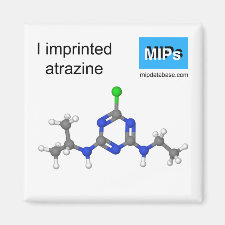
Authors: Sorouraddin SM, Afshar Mogaddam MR
Article Title: Development of molecularly imprinted-solid phase extraction combined with dispersive liquid-liquid microextraction for selective extraction and preconcentration of triazine herbicides from aqueous samples.
Publication date: 2016
Journal: Journal of the Iranian Chemical Society
Volume: 13
Issue: (6)
Page numbers: 1093-1104.
DOI: 10.1007/s13738-016-0823-0
Abstract: In this study, a sensitive and developed method based on the use of molecularly imprinted-solid phase extraction along with dispersive liquid-liquid microextraction has been reported for selective extraction and pre-concentration of triazine pesticides from aqueous samples. Molecularly imprinted microspheres (template, atrazine) were synthesized using precipitation polymerization and used as sorbent in SPE procedure. A model solution containing the studied pesticides was slowly passed through the atrazine-MIP cartridge. The adsorbed analytes were eluted with methanol, mixed with carbon tetrachloride (as extraction solvent) and rapidly injected into deionized water. In this process, the analytes were extracted into fine droplets of carbon tetrachloride and the fine droplets were sedimented in bottom of the conical test tube by centrifugation. Finally, GC-FID was used for the separation and determination of analytes in the sedimented phase. Some important parameters affecting the performance of developed method were completely investigated. The linear ranges of calibration curves were wide and limits of detection and limits of quantification were between 0.2-7 and 0.5-20 ng mL-1, respectively. The relative standard deviation obtained for six repeated experiments of atrazine (10 ng mL-1) was 3.1 %. The relative recoveries obtained for the atrazine in the spiked samples were within in the range of 92-98 %
Template and target information: atrazine, triazine herbicides
Author keywords: Molecularly imprinted-solid phase extraction, Dispersive liquid-liquid microextraction, gas chromatography, triazine herbicides



Join the Society for Molecular Imprinting

New items RSS feed
Sign-up for e-mail updates:
Choose between receiving an occasional newsletter or more frequent e-mail alerts.
Click here to go to the sign-up page.
Is your name elemental or peptidic? Enter your name and find out by clicking either of the buttons below!
Other products you may like:
 MIPdatabase
MIPdatabase









